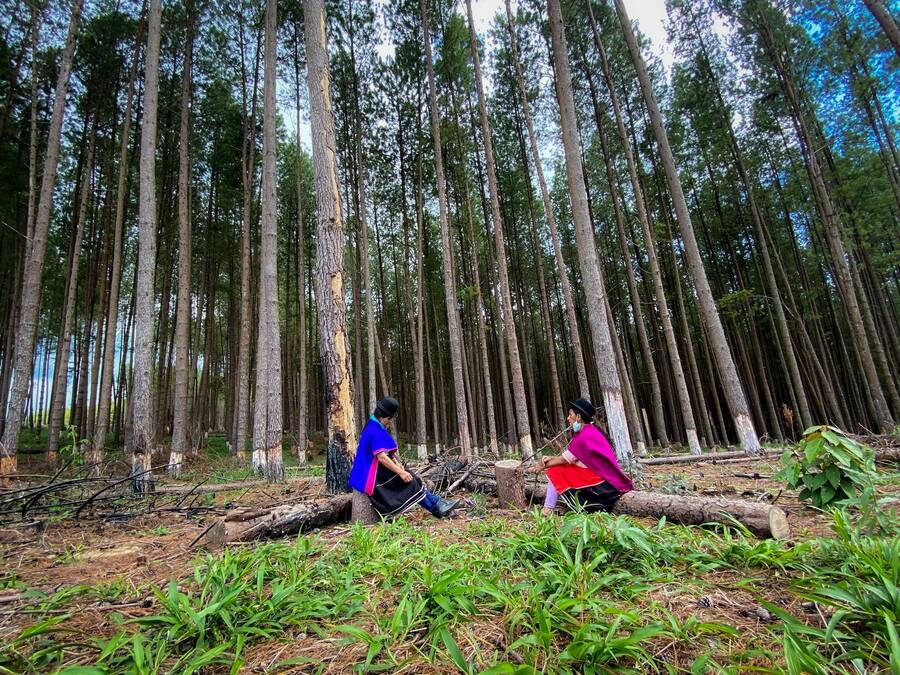Colombian Peasants Are Taking on an Irish Multinational-- and Being Met With Violence
Indigenous leaders protesting cardboard packaging giant Smurfit Kappa Group face threats and retaliation.
TOMÁS Ó’LOINGSIGH MAY 25, 2023

Indigenous Misak women rest at a Smurfit Kappa forestry plantation in Cajibío, Colombia, in January 2022. Removing the trees’ lower bark makes them unusable to the company, a form of nonviolent resistance.
PHOTO BY INDEPENDENT COLOMBIAN PHOTOJOURNALIST WHO WISHES TO STAY ANONYMOUS
There’s a good chance your latest delivery arrived in a box produced by the Irish multinational Smurfit Kappa Group. A leading producer of cardboard packaging globally, Smurfit Kappa owns 68,000 hectares of forestry plantations it intensively cultivates for paper production.
Almost 99% of that land is in Colombia. The company’s Dublin headquarters told In These Times it is committed to restoring “a healthy coexistence to the area and the communities,” but locals say the company’s vast landholdings are endangering both. Campesino activist Andrea Sierra (who asked for a pseudonym in fear of retaliation), from Cajibío, tells In These Times that, because of Smurfit Kappa’s presence, local peasants have lost much of the land needed for growing food. Smurfit Kappa’s monocropping and use of agrochemicals has “done great environmental damage,” Sierra says. “The native forests of my municipality are disappearing, as is the water of the streams.”
Over the past two years, Sierra and other Indigenous, Afro-Colombian and campesino activists have fought to reclaim some of the vast tracts Smurfit Kappa controls in the Cauca and Valle del Cauca provinces. Since mid-2021, local activists have occupied forests where the company operates, demanding it return all the company’s land in Cajibío to local communities.
But resistance of any kind in Colombia is regularly met with violent repression, as Human Rights Watch documented in a study of human rights defenders killed in the country. Sierra, who has been an activist for decades, says she’s experienced significant retaliation since joining the fight against Smurfit Kappa, though the ultimate source of these threats is unclear. For a time, threatening vehicles lingering outside her house forced her “to move far from the area with my family because I felt my life was in danger.”
. . .
Alberth Ochoa, a representative for the campesino organization Coordinador Nacional Agrario, says that, in Colombia, “businessmen and paramilitaries have historically been linked — one gives the orders and the other carries them out.” The Chiquita fruit company’s use of paramilitaries to quell community activism is one well-known example, as In These Times has reported.
More:
https://inthesetimes.com/article/indigenous-campesino-colombia-resistance-irish-multinational
